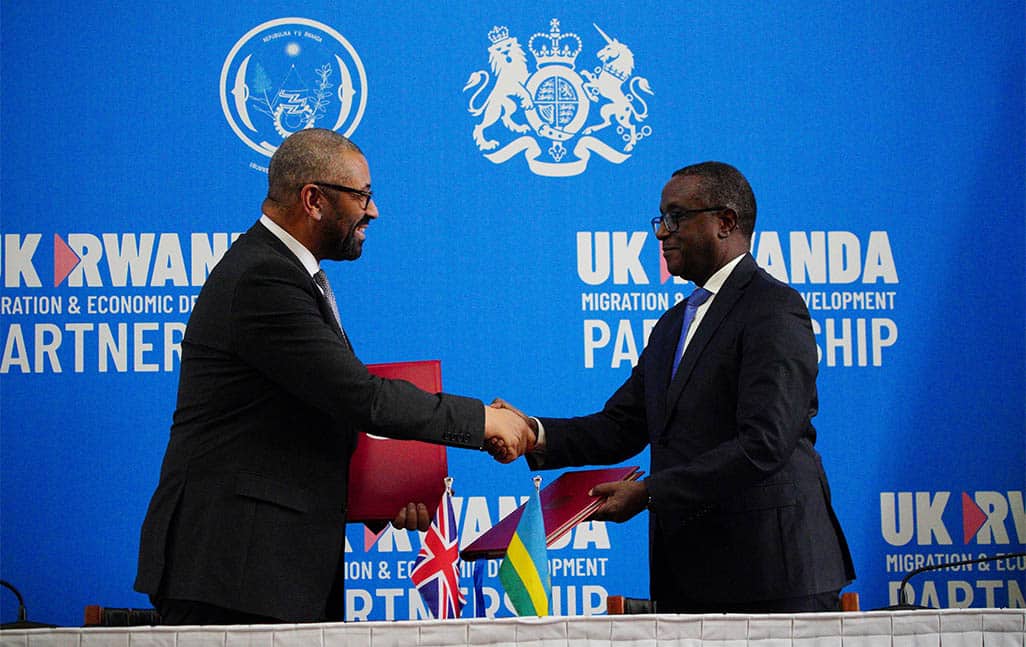British Home Secretary James Cleverly signed a new treaty with Rwanda on Tuesday in an attempt to overcome a court decision to block the government’s controversial policy of sending asylum seekers to the East African country.
The Rwanda plan is at the centre of the government’s strategy to cut migration and is being watched closely by other countries considering similar policies.
The United Kingdom’s Supreme Court last month ruled that such a move would violate international human rights laws enshrined in domestic legislation.
The new treaty will include an agreement that Rwanda would not expel asylum seekers to a country where their life or freedom would be threatened – one of the court’s major concerns.
There will also be a monitoring committee to enable individuals to lodge confidential complaints directly to them and a new appeal body made up of judges from around the world.
Cleverly said there was now no “credible” reason to block the deportation flights because the treaty addressed all the issues raised by the Supreme Court and no extra money had been given to Rwanda to upgrade the deal from the existing memorandum of understanding.
“I really hope that we can now move quickly,” Cleverly told a press conference in Rwanda’s capital Kigali.
Many lawyers and charities said it was unlikely that deportation flights could start before next year’s election. The opposition Labour Party, which has a double-digit lead in the polls, plans to ditch the Rwanda policy if it wins.
Under the plan agreed last year, Britain intends to send thousands of asylum seekers who arrived on its shores without permission to Rwanda to deter migrants crossing the Channel from Europe in small boats.
In return, Rwanda has received an initial payment of 140 million pounds ($180 million) with the promise of more money to fund the accommodation and care of any deported individuals.
PRESSURE
Prime Minister Rishi Sunak is under intense pressure to cut net migration, which hit a record 745,000 last year, with the vast majority coming through legal routes.
“Stop the boats” is one of five goals Sunak set for his government, to end the flow of asylum seekers who pay people smugglers for their Channel crossings, often in overcrowded boats that are not seaworthy.
The Supreme Court ruled against the Rwanda plan because there was a risk that deported refugees would have their claims wrongly assessed or returned to their country of origin to face persecution.
The new treaty is expected to be followed later this week by the publication of legislation declaring Rwanda a so-called safe country, designed to stop legal challenges against the planned deportation flights.
However, this is likely to trigger a new round of political and legal wrangling. The first flight was scheduled to go last summer but was cancelled at the last moment because of legal challenges.
Sarah Gogan, an immigration lawyer at Harbottle & Lewis, said Rwanda’s human rights record meant the government’s policy would be challenged.
“Rwanda is an unsafe country and this is not a quick fix,” she said. “You cannot in a matter of weeks or months reform a country and turn it into one with an impartial judiciary and administrative culture.”
Yvette Cooper, Labour’s home affairs spokeswoman, dismissed the government’s latest plans as another “gimmick”.







Click here to change your cookie preferences